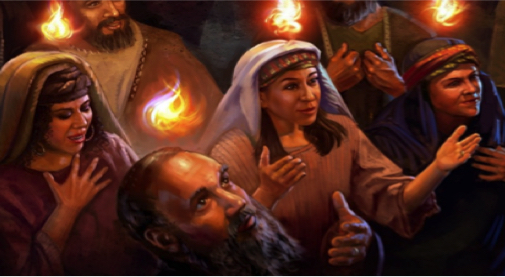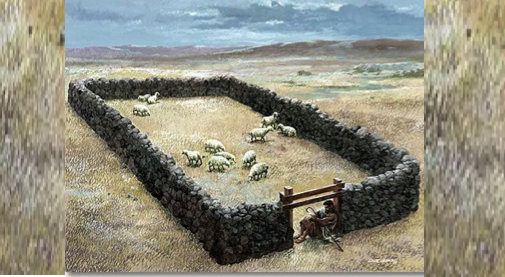
Blog

When the news broke a couple of weeks ago concerning the discovery of 215 bodies of children buried at the former Kamloops Indian Residential School in Kamloops, B.C., I, like the rest of you, was shocked, disappointed, angry, embarrassed, saddened (and the adjectives go on). While I am still processing the magnitude of this tragedy, I just feel I have to say something knowing full well that this something will always be inadequate. I want to try, nonetheless.

You don’t have to live long on this earth to have had an experience that has threatened your peace or well-being. Perhaps the image of a storm is the best metaphor to express what that was like. Job, in the first reading, is the one who epitomizes the expression, “If anything can go wrong, it will go wrong.” Everything was taken from Job (crops, livestock, family, and his health). It was like he was in a storm that would …

Every time we gather for Eucharist, the first reading we listen to is from the Hebrew Scriptures (what we used to call the “Old Testament”). The older the writing is, the further removed it is from our own experience. So, we need to get into the context of these ancient texts if they are to have something to say to us in our present-day context. Whenever I try to do that, I’m always surprised that their context, way back …

Seven years ago, just a few days before we celebrated what we are celebrating today—Pentecost—we were very much like the disciples in today’s gospel. They locked themselves in the Upper Room out of fear. Similarly, we locked ourselves in our houses for the same reason—fear. A young man had killed three Mounties and was still on the loose. Thank goodness events of that magnitude are rare. What was not so rare in Jesus’ time, and still in our time, …

It is hard to talk about the Feast of the Ascension (that great departure of Jesus in his physical form) without also talking about next Sunday’s Feast of Pentecost (that great return of Jesus in his spiritual form). Let’s just stay with today’s feast, Ascension, because if we do Ascension well, Pentecost almost takes care of itself.
When I think of Ascension, I can’t help but think of words we often hear the priest pray during …

Every spring, bar none, I spend a good amount of time pulling out lots of seedlings from my garden and flower beds. They sprout up from the thousands of maple seeds that fell last fall from the maple trees on the church property. They are everywhere, and they require so little to get started. They are under the leaf litter. They are found in the smallest cracks. They are against the rectory foundation. And they are growing against the …

Whenever a coach feels his/her team is not living up to their potential, he/she will always say something typical like, “We’ve got to get back to basics.” Without demoting anyone to the minor leagues, let’s look at some of the basics of liturgy that we would do well to return to. I’ll call them my seven deadly liturgical “sins”. The first four “sins” we have little control over due to COVID; the next three we are totally in control …

Faith is a very precarious thing isn’t it? The moment you think you have it, something will happen this very day to make you doubt that you had it at all. But don’t get discouraged because these scripture readings are telling you that you probably have more faith than you know and moreover, you never lose it entirely. Like learning how to ride a bicycle, you never lose it. Your faith will by tried and tested, no doubt. It …

As you probably already know, the Bible is more like a mini library than a single book. I say that because the Bible is composed of many books written by many authors over hundreds of years. When it was put together in its final form, the form we have, one of the books included was the book entitled, The Acts of the Apostles. We hear from the Acts of the Apostles as our first reading each Sunday throughout the …

For the longest time I questioned (and still question), why Jesus chose the 12 apostles that he did? I realize we all need an inner circle of trusted confidants, sounding boards, soul mates, good friends; I get that. Yet, given the fact that the apostles are portrayed so poorly in all four gospels, why choose these and not some others? The other question, that I do not have an answer to is: why did Jesus appear, after the resurrection, …